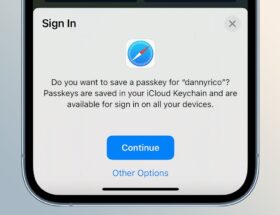EU asks Apple to open iPhone to competitors
 1 Facebook x.com Reddit
1 Facebook x.com Reddit
Apple has published a white paper backing the European Union's policy of ensuring interoperability between competing tech companies, but says the law is open to risky interpretation.
Similar to its March 2024 post raising security concerns about the Digital Markets Act, Apple has published a white paper on EU interoperability laws. Interoperability is a requirement that Apple share its technology with competitors so they can provide users with features like recording audio through the iPhone's microphone.
This follows the publication by the EU of a document suggesting Apple must change its proprietary technology to make it accessible to competitors. Apple's white paper, titled “It Gets Personal”, claims that “abusing the DMA's interoperability mandate could expose your personal information”.
Apple is very specific that it does not object to the EU or criticize the mandate. It says it believes the mandate is open to interpretation, and that grey areas will lead to problems if left unchecked.
Specifically, its white paper says Apple receives what it describes as interoperability requests from many firms. If it were required by law to comply with all of these requests, it says there is a risk that firms “may seek to abuse” the mandate.
Apple is concerned about what Meta has asked it to do — image source: Apple
“As an example of our concerns, Meta has made 15 requests (and continues to make) for potentially far-reaching access to Apple's technology stack that, if granted, would weaken the privacy protections our users have come to expect from their devices,” it says.
Apple then lists all 15 of those requests, which range from mirroring an iPhone to “connecting to all of a user's Apple devices.” Apple says that in many cases, the requests appear to be “completely unrelated to the actual use of Meta's external devices, such as Meta smart glasses and Meta Quests.”
The company says Meta wants its Facebook, WhatsApp, and Instagram apps to read all messages and emails. Apple claims this will mean Meta will be able to “see every phone call they make or receive, track every app they use, scan all their photos, view their files and calendar events, log all their passwords, and more.”
In case that wasn’t clear enough, Apple adds a warning that it’s impossible to know what the implications of this mandate would be.
“For example, if a user asks Siri to read aloud the latest message received through WhatsApp, Meta or other third parties could indirectly access the contents of the message,” it says. “No one is in a position to understand the full risks of this.”
Apple argues that the DMA mandate could potentially be used as a way for firms to circumvent Europe’s strict General Data Protection Regulation (GDPR). That’s “a strict set of privacy rules… that Apple has always supported.”
What Apple Wants to Do Next
After outlining the steps it goes through when requesting compatibility with Apple technologies, the company concludes its whitepaper with a form of mission statement.
“Apple’s high standards for privacy and security are what set us apart,” it says. “Our users depend on it. We want users and developers alike to safely enjoy the great features and capabilities of iPhone.”
“We will never waver from our fundamental commitment to the privacy and security of our users,” it continues. “We trust that the EU will seek to implement interoperability requirements in a way that complies with the GDPR.”
Separately, Apple Intelligence was initially delayed in Europe due to what appeared to be compatibility issues. It is not yet clear how this will be resolved, but Apple has committed to making Apple Intelligence available in EU countries and in languages such as French, German and Italian.
Follow AppleInsider on Google News









